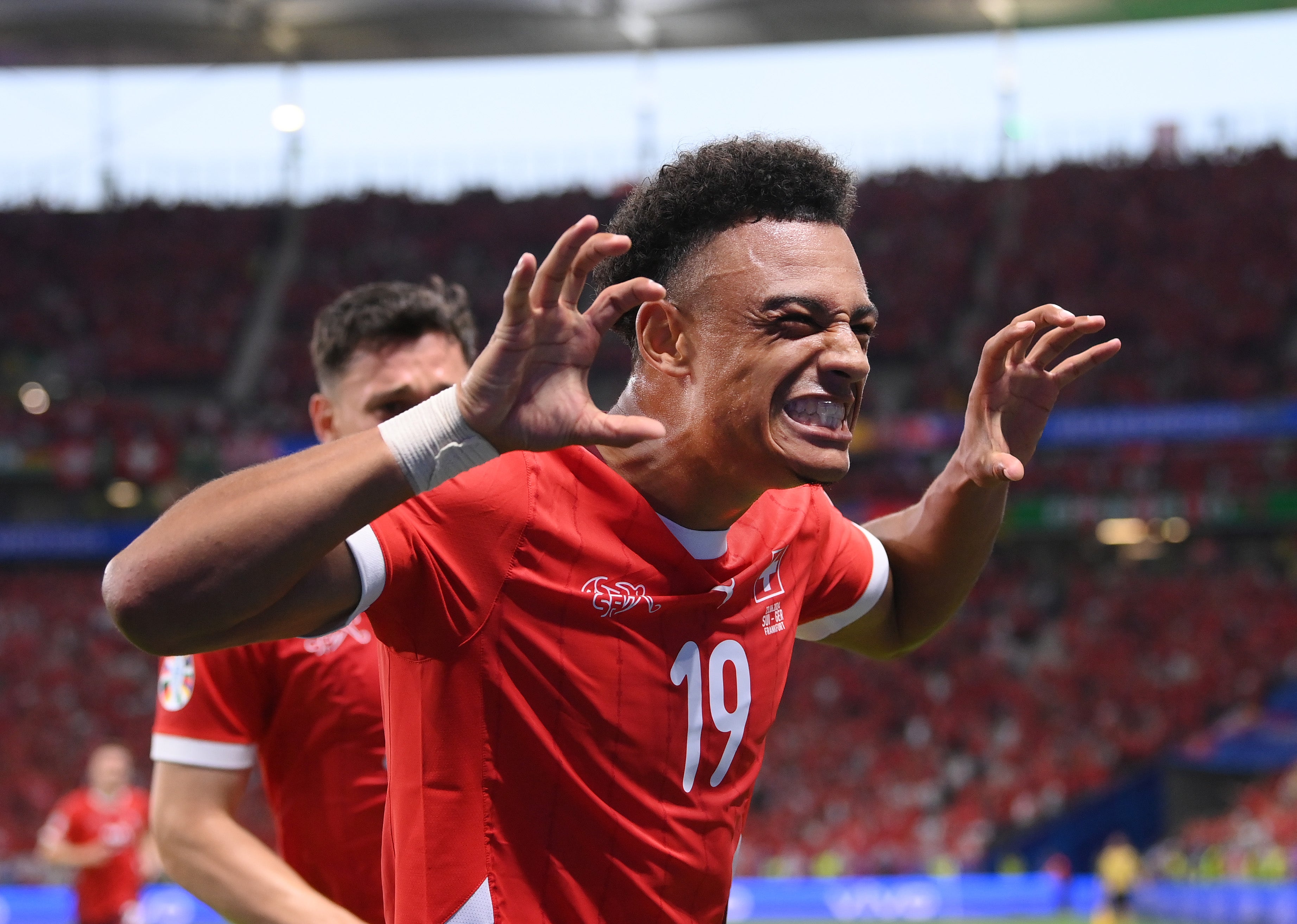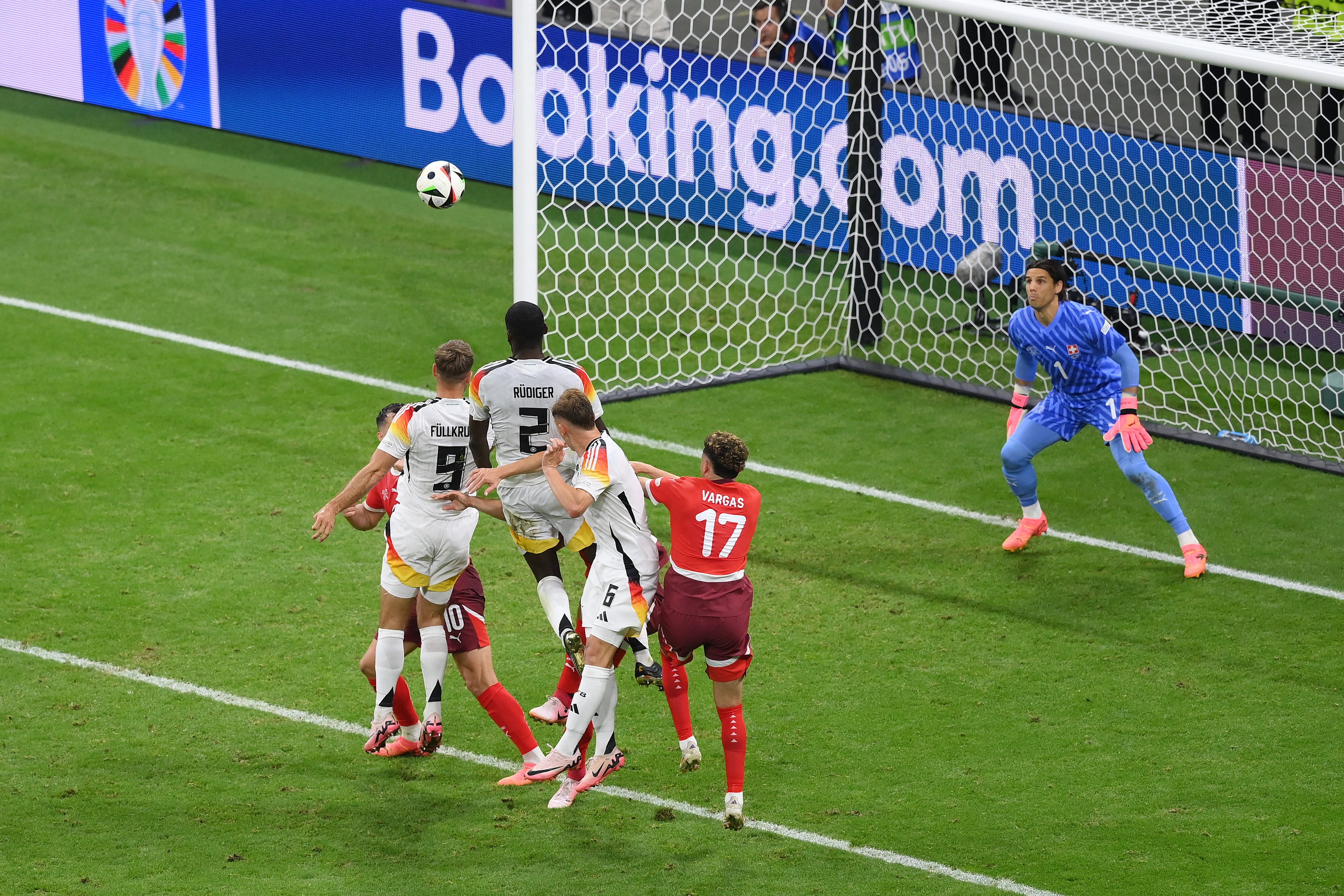Isn’t it amazing how quickly perceptions can change? At 9pm local time on Sunday, Germany kicked off their final group game as favourites to win Euro 2024. By half-time, many fans must have wondered whether it might all come crashing down for the hosts as soon as the last 16. By 11pm, the feel-good factor was back. Faith was swiftly restored.
After Germany’s mauling of Scotland came a trickier but well-earned win over Hungary, and then this: a 1-1 draw against Switzerland, secured in added time and saving the hosts from a second-place finish in Group A.
For 64 minutes of game time and the 15 forming the interval, a last-16 clash against Italy was on the cards. Although the defending champions are admittedly yet to discover their fate in Group B, the German feel-good factor was fading in Frankfurt. But it was recoverable and, in the end, it was recovered by Niclas Fullkrug.
But what about the start? It was not as if Julian Nagelsmann had fielded a weakened side here; the 36-year-old played the same starting XI that tore through Scotland so mercilessly, and which showed maturity and professionalism to see off Hungary. It was expected that those players would not only beat Switzerland but that fielding them together again would offer a useful consistency and momentum ahead of the knockouts.
It wasn’t quite that straightforward, and not only because Jonathan Tah’s booking has ruled the centre back out of the next round. Still, Germany started well enough. Jamal Musiala showed further flashes of his prodigious talent, the 21-year-old pulling off a ridiculous turn, burst and pass when pinned against the sideline in his own half. There was a bewitching fluidity to the front line as well, with wingers Musiala and Florian Wirtz moving freely and almost acting as auxiliary No 10s for Ilkay Gundogan. They would drop inside and leave Max Mittelstadt and Joshua Kimmich to push up from full-back, and the interplay was instinctive and swift all around.
Without the ball, the Germans were also willing to press and to do so with tenacity. Whereas England looked paralysed by thought against Denmark, uncertain how to cure whatever was ailing them, Germany appeared unthinking in the best way.
They also appeared to take the lead when Robert Andrich whipped a shot into the bottom corner from range, the ball bouncing over a hapless Yann Sommer at his near post. But a foul by Musiala in the build-up saw the strike ruled out, and then it was Switzerland’s turn to strike.

Antonio Rudiger failed to prevent a cross on Germany’s right side, and Dan Ndoye stretched past Tah to stab the ball into the roof of the net.
It was a shock, but not necessarily cause for alarm. And yet the Germans did look alarmed. Where their instinctive, one-touch passing had been so encouraging earlier on, it was costing them now; they were moving the ball anxiously, frantically, and passes were misplaced or under-hit on numerous occasions. Shots were also skewed, and Havertz failed to tame more than one header. Switzerland were performing ably, but the German errors were more of their own making. That, perhaps, was the cause for concern.
Tah picked up a booking, costing himself an appearance in Germany’s first knockout game of this tournament. For a chunk of Sunday evening, pessimists might have wondered if it would be their last knockout game of the tournament. But that would have been a case of catastrophising, and German fans needn’t panic in the way that German players did here.
One German who did not panic, in any case, was Nagelsmann. He replaced Tah with Nico Schlotterbeck, Mittelstadt with David Raum, and Andrich with Maximilian Beier.
With 20 minutes remaining, Wirtz looked to fashion something out of nothing, darting around his defender in the Swiss box and cutting the ball for Kimmich. Seven yards out, he seemed certain to score, but an outstanding block from Manuel Akanji denied him.
Nagelsmann surprisingly removed Musiala, as well as Wirtz, bringing on Leroy Sane and Fullkrug. These proved the correct calls.


For a while, it was Havertz who went closest, but again he could not quite get his header right, nodding the ball onto the top of the crossbar. Switzerland also went close when Ruben Vargas clipped a crisp finish across Manuel Neuer, but only after veering offside. Within a few minutes, the visitors again threatened to double their lead, Granit Xhaka forcing Neuer into a world-class save with a fierce long-range effort.
The crucial goal would come from close range, though, when Fullkrug did what Havertz could not. The substitute found the net with a header after keeping himself narrowly onside, assisted by another substitute in Raum.
That the goal and assist came from substitutes poses the question of whether Nagelsmann should actually adjust his starting XI in the last 16 – where England, Denmark, Serbia or Slovenia await. Yet such adjustments might well qualify as overreactions or overthinking; the coach’s preferred starters would still be fancied against most teams in this tournament.
Now, however, a small seed of doubt has been planted. It adds an intriguing layer to Germany’s pursuit of Euro 2024 glory.
